Kabarole Research and Resource Centre-Uganda (KRC-Uganda) is a well-established NGO operating countrywide in different regions of Uganda. Founded in 1996, with a research mission and a long-term commitment to understanding the measures and drivers of poverty and its solutions, KRC-Uganda has …
Our Programs
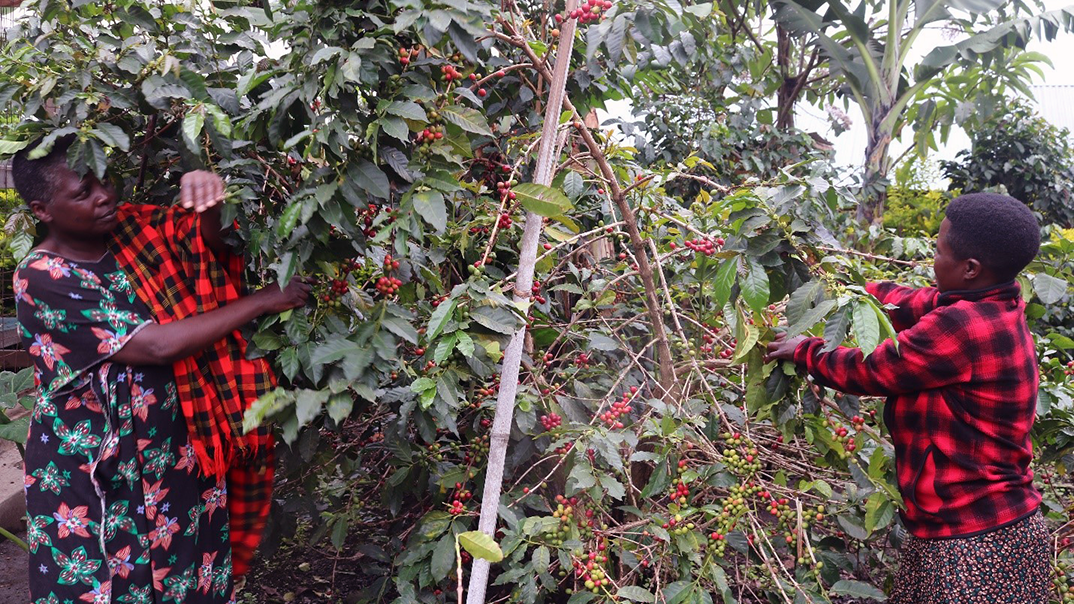
FAGREC Unit
This program plays a vital role in bolstering the efforts of farmers’ organizations by providing comprehensive support across various critical areas of agricultural development.
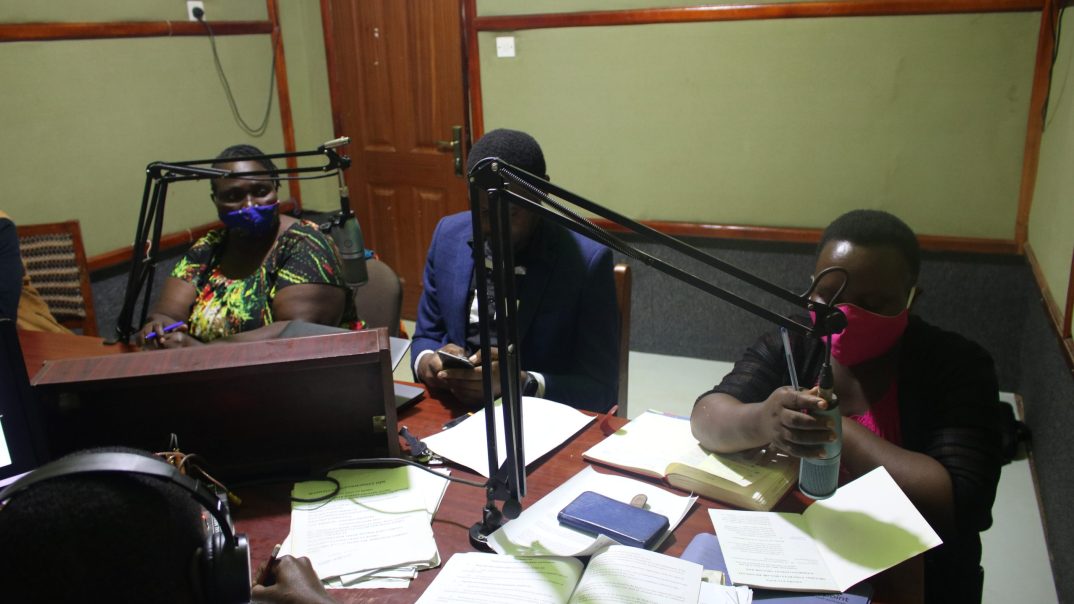
Information Research & Communications
Since its founding in 1996, KRC has stood by the philosophy that meaningful actionable data is the driver of successful and impactful development programs.
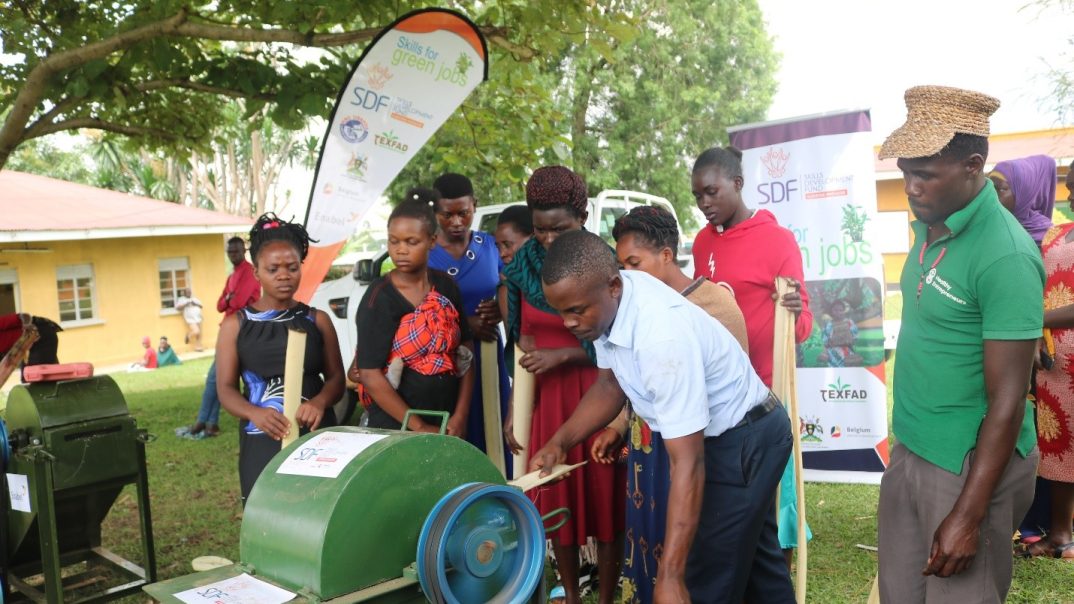
GPH Unit
KRC facilitate spaces for citizens to make their voices heard and exercise their democratic and civic rights. We work with governance structures with the aim of enhancing
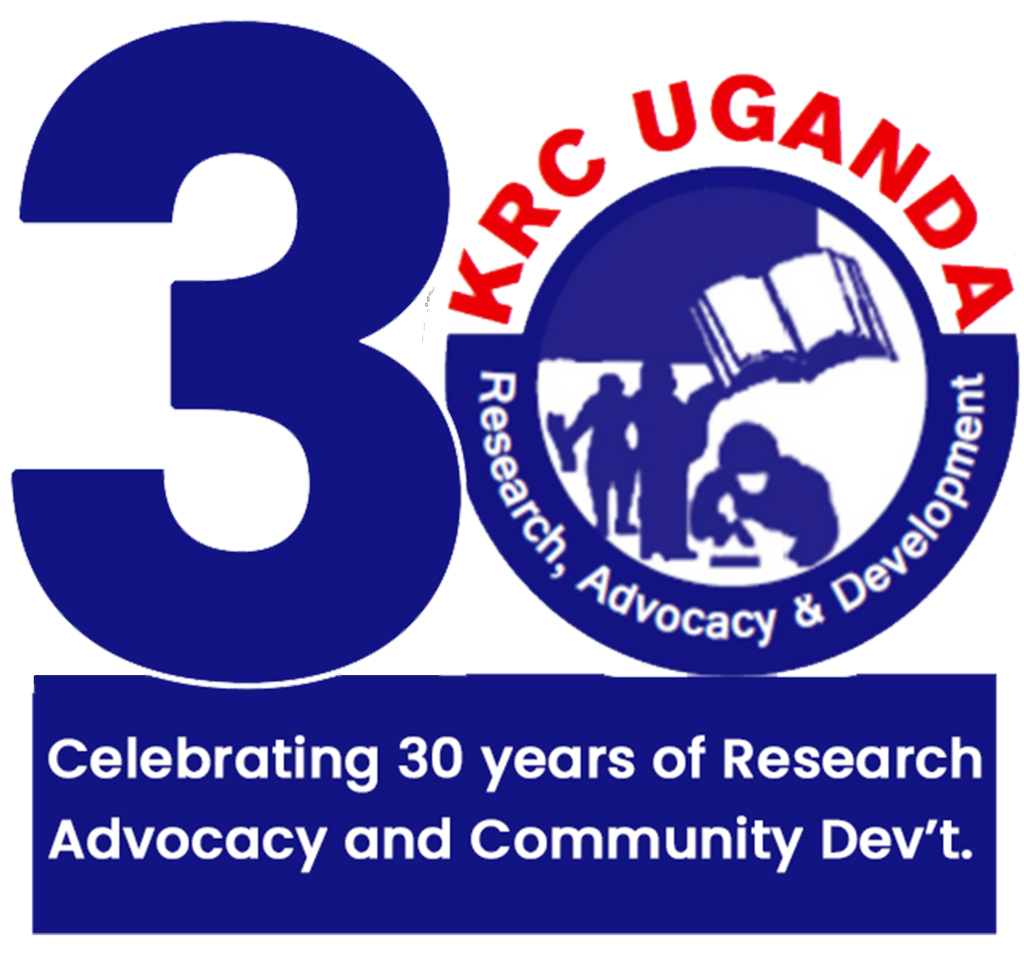
30 Years of Impact
KRC Uganda is celebrating 30 years of transformative community work, advancing research, advocacy, and inclusive development across Uganda.
Since 1996, we’ve empowered citizens, influenced policy, and championed social justice in areas like nutrition, livelihoods, climate resilience, gender equality, and civic education. As we mark this milestone, we reaffirm our commitment to building informed, self-reliant communities.
Thank you for being part of the journey.
…Click to Read More
News Articles
Enhance your knowledge about what is happening in the Rwenzori Sub Region
Get informed,
Stay Informed
… click to read more articles
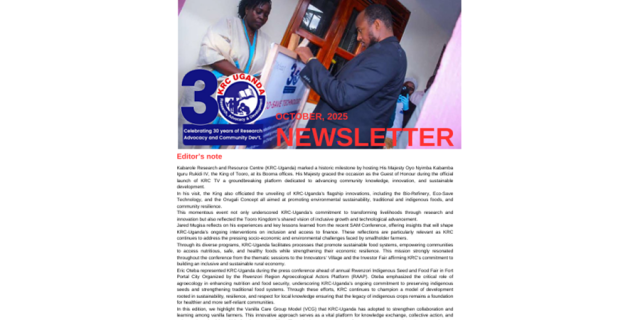
NEWSLETTER OCTOBER 2025
Kabarole Research and Resource Centre (KRC-Uganda) marked a historic milestone by hosting His Majesty Oyo Nyimba Kabamba Iguru Rukidi IV, the King of Tooro, at its Booma offices. His Majesty graced the occasion as the Guest of Honour during the official launch of KRC TV a groundbreaking platform dedicated to advancing community knowledge, innovation, and sustainable development. In his visit, the King also officiated the unveiling of KRC-Uganda’s flagship innovations, including the Bio-Refinery, Eco-Save Technology, and the Orugali Concept all aimed at promoting environmental sustainability, traditional and indigenous foods, and community resilience. This momentous event not only underscored KRC-Uganda’s commitment to transforming livelihoods through research and innovation but also reflected the Tooro Kingdom’s shared vision of inclusive growth and technological advancement.Jared Mugisa reflects on his experiences and key lessons learned from the recent SAM Conference, offering insights that will shape KRC-Uganda’s ongoing interventions on inclusion and access to finance. These reflections are particularly relevant as KRC continues to address the pressing socio-economic and environmental challenges faced by smallholder farmers. Through its diverse programs, KRC-Uganda facilitates processes that promote sustainable food systems, empowering communities to access nutritious, safe, and healthy foods while strengthening their economic resilience. This mission strongly resonated throughout the conference from the thematic sessions to the Innovators’ Village and the Investor Fair affirming KRC’s commitment to building an inclusive and sustainable rural economy.Eric Oteba represented KRC-Uganda during the press conference ahead of annual Rwenzori Indigenous Seed and Food Fair in FortPortal City Organized by the Rwenzori Region Agroecological Actors Platform (RAAP). Oteba emphasized the critical role of agroecology in enhancing nutrition and food security, underscoring KRC-Uganda’s ongoing commitment to preserving indigenous seeds and strengthening traditional food systems. Through these efforts, KRC continues to champion a model of development rooted in sustainability, resilience, and respect for local knowledge ensuring that the legacy of indigenous crops remains a foundation for healthier and more self-reliant communities.In this edition, we highlight the Vanilla Care Group Model (VCG) that KRC-Uganda has adopted to strengthen collaboration and learning among vanilla farmers. This innovative approach serves as a vital platform for knowledge exchange, collective action, and enhanced productivity within farming communities. Through these care groups, farmers are empowered to share experiences, access training opportunities, and adopt practical innovations that improve both the quality and quantity of their vanilla yields. By fostering peer learning and community-driven solutions, the model not only boosts livelihoods but also promotes sustainable and resilient agricultural practices across the Rwenzori region Click to read Newsletter
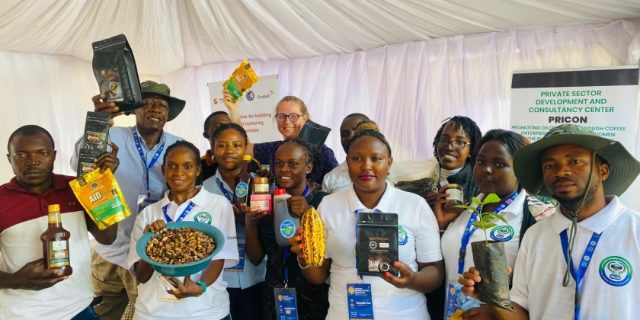
KRC-Uganda Drives Innovation and Market Visibility at UMA Trade Fair
Participation in national exhibitions provides an important avenue for promoting innovation, entrepreneurship, and local enterprise. From 5th to 10th October 2025 KRC-Uganda, through the VIBRANT Project, proudly exhibited at the 31st Uganda Manufacturers Association (UMA) International Trade Fair held at the UMA Showgrounds in Lugogo. The event offered a dynamic platform to showcase the richness of Ugandan vanilla and the creativity of youth craft enterprises from the Rwenzori Region. The KRC-Uganda exhibition booth attracted more than 150 visitors, including farmers, traders, donors, exporters and government representatives. Through interactive sessions, visitors learned about vanilla value addition from curing and processing to the production of high-quality vanilla paste, powder, and caviar. Despite Uganda’s local vanilla consumption remaining at about 1%, there was clear enthusiasm and curiosity about how to make the product more accessible to local markets. During the six-day exhibition, the team successfully sold 10 kilograms of cured vanilla, 300 grams of caviar worth UGX 60,000, 400 grams of vanilla paste worth UGX 80,000, and 400 grams of vanilla powder worth UGX 70,000, earning a total of over UGX 1.2 million. These sales not only reflected strong public interest but also demonstrated the potential of Uganda’s vanilla industry when supported by strategic marketing and attractive packaging. The event also generated valuable discussions on how to improve marketing and pricing strategies for both vanilla and crafts. Visitors emphasized the importance of introducing smaller, affordable packaging for local buyers and enhancing product presentation to appeal to broader market segments. KRC-Uganda intends to integrate these insights into its future marketing plans, ensuring that pricing remains competitive while sustaining quality and profitability for farmers and youth entrepreneurs. Alongside the vanilla products, the booth featured an impressive display of youth craft products that captivated both national and international visitors. These crafts showcased the creativity, innovation, and determination of young people supported by KRC-Uganda’s Youth Hub enterprises. Their integration with vanilla products at the exhibition underscored the importance of inclusive economic empowerment and the power of youth innovation. A highlight of the exhibition was a visit from Lucie Carlier, the Project Manager Social Protection and Decent Work, who expressed deep appreciation for both the vanilla products and the youth crafts. She commended the creativity, collaboration, and professionalism demonstrated by the KRC-Uganda team and their partners, noting that such initiatives reflect the positive impact of the VIBRANT Project in empowering communities and promoting value addition. The participation at the UMA Trade Fair enhanced KRC-Uganda’s visibility, strengthened partnerships with key institutions such as ENABEL, UNBS, and URSB, and created new market linkages with exporters and private traders. More importantly, it reaffirmed the organization’s commitment to building resilient livelihoods through innovation, enterprise, and collaboration. As KRC-Uganda looks ahead, the experience gained from the UMA Trade Fair will guide future strategies focusing on improved packaging and labeling, enhanced pricing models, and continued participation in trade events to sustain visibility and market growth. The event was not only a success in sales and networking but also a testament to the power of creativity, teamwork, and belief in Uganda’s potential to thrive through local enterprise. Compiled by Carol Namagembe Production and Marketing Officer, VIBRANT
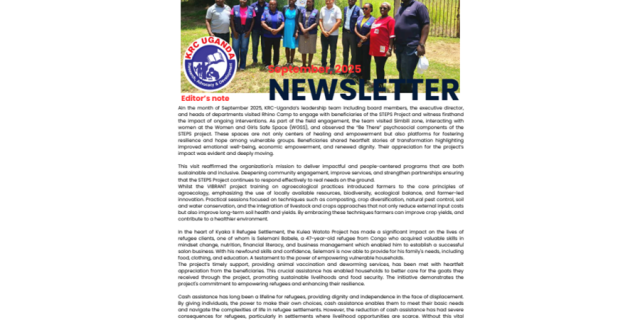
Newsletter September 2025
In the month of September 2025, KRC-Uganda’s leadership team including board members, the executive director, and heads of departments visited Rhino Camp to engage with beneficiaries of the STEPS Project and witness firsthand the impact of ongoing interventions. As part of the field engagement, the team visited Simbili zone, interacting with women at the Women and Girls Safe Space (WGSS), and observed the “Be There” psychosocial components of the STEPS project. These spaces are not only centers of healing and empowerment but also platforms for fostering resilience and hope among vulnerable groups. Beneficiaries shared heartfelt stories of transformation highlighting, improved emotional well-being, economic empowerment, and renewed dignity. Their appreciation for the project’s impact was evident and deeply moving. This visit reaffirmed the organization’s mission to deliver impactful and people-centered programs that are both sustainable and inclusive. Deepening community engagement, improve services, and strengthen partnerships ensuringthat the STEPS Project continues to respond effectively to real needs on the ground.Whilst the VIBRANT project training on agroecological practices introduced farmers to the core principles of agroecology, emphasizing the use of locally available resources, biodiversity, ecological balance, and farmer-led innovation. Practical sessions focused on techniques such as composting, crop diversification, natural pest control, soil and water conservation, and the integration of livestock and crops approaches that not only reduce external input costsbut also improve long-term soil health and yields. By embracing these techniques farmers can improve crop yields, andcontribute to a healthier environment.In the heart of Kyaka II Refugee Settlement, the Kulea Watoto Project has made a significant impact on the lives of refugee clients, one of whom is Selemani Babele, a 47-year-old refugee from Congo who acquired valuable skills in mindset change, nutrition, financial literacy, and business management which enabled him to establish a successful salon business. With his newfound skills and confidence, Selemani is now able to provide for his family’s needs, including food, clothing, and education. A testament to the power of empowering vulnerable households.The project’s timely support, providing animal vaccination and deworming services, has been met with heartfelt appreciation from the beneficiaries. This crucial assistance has enabled households to better care for the goats they received through the project, promoting sustainable livelihoods and food security. The initiative demonstrates the project’s commitment to empowering refugees and enhancing their resilience.Cash assistance has long been a lifeline for refugees, providing dignity and independence in the face of displacement.By giving individuals, the power to make their own choices, cash assistance enables them to meet their basic needs and navigate the complexities of life in refugee settlements. However, the reduction of cash assistance has had severe consequences for refugees, particularly in settlements where livelihood opportunities are scarce. Without this vital support, refugees are left struggling to survive with many facing increased vulnerability to poverty, hunger and exploitation. Click to read more
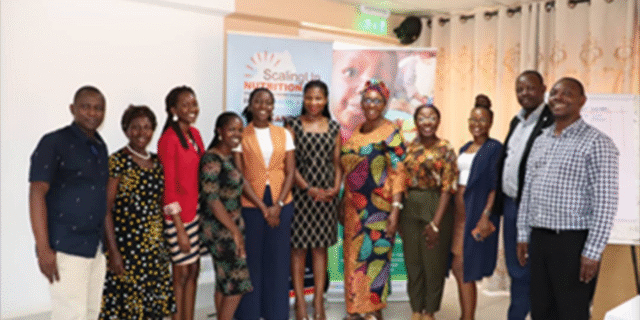
KRC-Uganda at the Helm: Leading Civil Society Action in Uganda’s SUN Movement
The Scaling Up Nutrition (SUN) Movement is a global, multi-stakeholder effort launched in 2010 to end all forms of malnutrition by 2030. It operates on the premise that nutrition is not only a health issue but a cornerstone of sustainable development. SUN 3.0 (2021-2025), the Movement’s current strategy, emphasises country leadership, multi-sectoral action (health, agriculture, education, WASH, social protection, climate), equity, youth engagement, and the principle of “leaving no one behind.” Within this broader framework, the SUN Civil Society Network (SUN CSN) connects over 5,000 local and international civil society organisations across more than 50 countries. Its goals are aligned with the Movement’s global mandate, including promoting meaningful civil society representation (especially for marginalised groups), advocating for stronger policies and accountability, building network sustainability, scaling up nutrition-sensitive interventions, and grounding actions in evidence and learning. In Uganda, the Civil Society Alliance for Nutrition Uganda (CISANU) functions as the national Civil Society Alliance under SUN CSN. Its role is to coordinate and amplify CSOs working on nutrition-specific and nutrition-sensitive interventions, engage the government on policies, monitor commitments, and ensure multi-stakeholder coordination. KRC-Uganda, as Vice Chair of SUNCSN Uganda, occupies a strategic leadership position in this system, helping steer Uganda’s SUN commitments into action. In September, atEureka Hotel, Kampala, KRC-Uganda (as Vice Chair of SUNCSN) partnered with the SUN Movement East & Southern Africa regional teams to host a two-day good governance technical support workshop. The core purpose was to assess the institutional capacities of SUNCSN Uganda, identify gaps, and build roadmaps for improvement. While the Kampala mission is part of KRC-Uganda’s ongoing work, its leadership role involves multiple dimensions aligned with the SUN Movement’s core mandate: Advocacy & Policy Engagement: Influencing national policies, budgets, and legal/regulatory frameworks to prioritise nutrition, especially for vulnerable groups. Capacity Building and Institutional Strengthening: Supporting CSOs to build systems (governance, financial, human resources, monitoring) to be credible partners in multi-stakeholder platforms. Coordination: Bridging between civil society, government, donors, private sector, and other SUN stakeholders to ensure alignment behind Uganda’s Nutrition Action Plan and other national strategies. Evidence and Learning: Facilitating learning exchanges, collecting and using data, monitoring progress, and adapting strategies based on what is working. Ensuring Inclusion: Making sure marginalised voices (women, youth, remote communities) are represented in decision-making and that interventions are equitable. Conclusion KRC-Uganda’s role as Vice Chair of SUNCSN Uganda goes beyond representation: it is about leadership, system building, advocacy, and ensuring that civil society has both a voice and capacity. As the SUN Movement strategy underlines, sustainable progress in nutrition depends on strong institutions, inclusive participation, evidence, and accountability. With the right follow-up, Uganda’s civil society, with KRC-Uganda in a pivotal role, the SUN Movement will achieve its vision of a world free from malnutrition by 2030. SUN Civil Society Network+3Scaling Up Nutrition+3Scaling Up Nutrition+3 Article by Nalunkuuma Sharon, Food Systems & Nutrition Program Manager, KRC-Uganda































